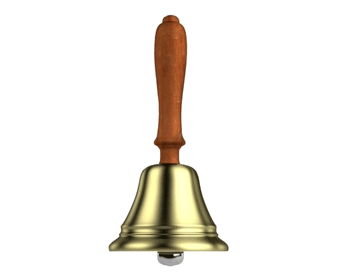Osnovna škola "Bogoslav Šulek" Slavonski Brod



Matična škola
| 1. | 8.00 - 8.45 |
| 2. | 8.50 - 9.35 |
| 3. | 9.50 - 10.35 |
| 4. | 10.40 - 11.25 |
| 5. | 11.40 - 12.25 |
| 6. | 12.30- 13.15 |
| 7. | 13.20 - 14.05 |
| 8. | 14.10 - 14.55 |
| 9. | 15.00 - 15.45 |
| 10. | 15.50 - 16.35 |
| 11. | 16.40 - 17.25 |
| 12. | 17.30 - 18.15 |
Područna škola - Vranovci
| 1.smjena | |
| 1. | 7.50 - 8.35 |
| 2. | 8.40 - 9.25 |
| 3. | 9.40 - 10.25 |
| 4. | 10.40 - 11.25 |
| 5. | 11.30 - 12.15 |
| 6. |
12.20 - 13.05 |
| 7./0.sat | 13.10 - 13.55 |
| 2.smjena | |
| 1. | 14.00 - 14.45 |
| 2. | 14.50 - 15.35 |
| 3. | 15.50 - 16.35 |
| 4. | 16.40 - 17.25 |
| 5. | 17.30 - 18.15 |
| 6. | 18.20 - 19.05 |
| « Svibanj 2025 » | ||||||
| Po | Ut | Sr | Če | Pe | Su | Ne |
| 28 | 29 | 30 | 1 | 2 | 3 | 4 |
| 5 | 6 | 7 | 8 | 9 | 10 | 11 |
| 12 | 13 | 14 | 15 | 16 | 17 | 18 |
| 19 | 20 | 21 | 22 | 23 | 24 | 25 |
| 26 | 27 | 28 | 29 | 30 | 31 | 1 |
| 2 | 3 | 4 | 5 | 6 | 7 | 8 |



O projektu
Nemophilist Econuts Project has been inspired by the slogan “The goal of life is to make your heartbeat match the beat of the universe, to match your nature with Nature.” The biggest goal we aim to achieve with this project is to re-establish the balance and the rhytm between nature and human beings. The 8th European Union Environment Action Program, covering the years 2021-2030, focuses on climate and sustainability issues such as biodiversity loss, climate change, resource use and pollution has become our project’s starting point.
The school "Bogoslav Šulek" joined the new ERASMUS + project "Nemophilist Econuts for Green Planet", and teachers Nikolina Stanić and Mirta Brajković went on the trip as representatives of our school. Two schools from Turkey, Romania and Italy also participate in the project. The main theme of this project is recycling, as a good way to protect the environment and stimulate the economy, a greener world, and climate change and sustainability.
The host of the first mobility from 13.5.2024. – 16.5.2024. was a school from Italy, Istituto Comprensivo Resta - De Donato Giannini, from Turi. Turi is a city in the south of Italy, in the province of Apulia. It is a honey-colored stone town with about 12,000 inhabitants, on the Murgia plateau. It is famous for its special variety of cherries, which is why the city got the name "city of ferrovia cherries". They also produce olive oil, primitivo wine and almonds.
On the first day, after the welcome program, the schools participating in the project presented their countries, cities and schools. We participated in a workshop on making mozzarella, one of the most famous Italian cheese, which belongs to the group of steamed cheese. It is always kept in its own whey, which keeps it fresh and elastic, and is made in smaller round or egg-shaped lumps. We enjoyed tasting cheese, salads, frisella with tomatoes and delicious focaccia. In the afternoon we visited the capital of the Puglia region, Bari, a famous commercial center and a port, an important university center, which still preserves the memory of its maritime exploits from the Middle Ages, as well as its precious monuments and impressive churches.
On the second day, the students of the host school presented the activities they carried out on the topic of environmental protection, and we compared them with the way of working in other countries, that are participants. After the presentation "How to plant a marigold and get seeds", we visited the recycling center in Turi, and then the unusual and picturesque town of Alberobello. The UNESCO cultural heritage town, known for its 1,500 houses with domed roofs, called trulli.
On the third day, we participated in a seminar on sustainable fashion "Eco-fashion" and regenerative agriculture and cotton cultivation "Sustainable fashion-Regenerative cotton cultivation". After the distribution of the certificates, we visited Polignano a Mare, a tourist center with a historical center based on a cliff, plunging into the sea, known for its beaches and bays with numerous natural caves.
We hope that, in accordance with the goal of the project, we will make young generations aware of the environment and climate change, raise awareness and the importance of less consumption and more recycling, for example by recycling household waste, which reduces the carbon footprint and greenhouse gases. Furthermore, we hope to encourage better use of natural resources and activities for green growth, and ensure the adoption of correct lifestyles.
Nikolina Stanić
